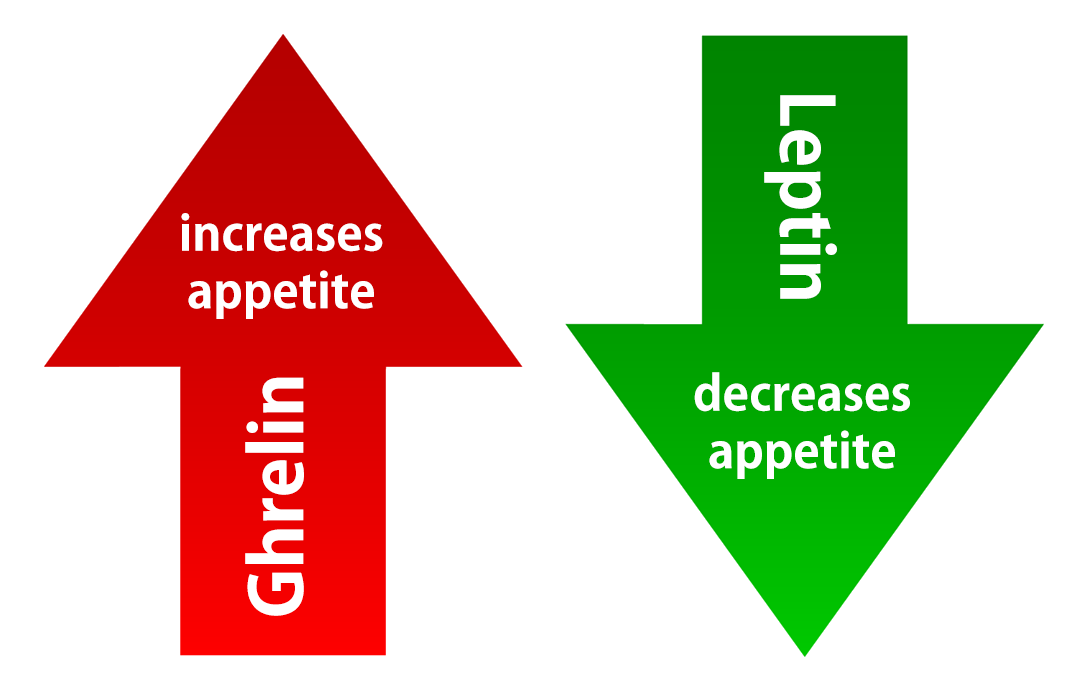
Levels of leptin, the appetite suppressor, are lower when you’re thin and higher when you’re overweight. Leptin tells your body that it’s full, and when it’s high you feel full and satisfied from eating. But many obese people have built up a resistance to the appetite-suppressing effects of leptin. When you have Leptin resistance, your body is not accurately reading those signals of fullness causing you to be hungrier, more often.
Ghrelin increases appetite and when it is chronically high, you have an increased appetite, crave sweets, tend to eat more at meals, and have an increased risk of storing the calories you eat as fat.
However, another new study, “Successful weight loss maintenance includes long-term increased meal responses of GLP-1 and PYY3–36“, confirms the first, yet continues the research for a year and finds that after 52 weeks the “hunger hormones” return to normal levels.
Futurity says, “After the initial weight loss, the participants entered a 52-week weight maintenance protocol, which consisted of regular meetings with a clinical dietitian who offered tips on lifestyle changes and diet calendar tracking. If the participants gained weight, they replaced up to two meals per day with a low-calorie diet product.
“The interesting and uplifting news in this study is that if you are able to maintain your weight loss for a longer period of time, it seems as if you have ‘passed the critical point’, and after this point, it will actually become easier for you to maintain your weight loss than is was immediately after the initial weight loss.
“Thus, the body is no longer fighting against you, but actually with you, which is good news for anyone trying to lose weight.”
